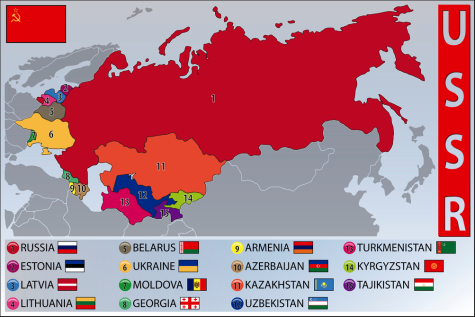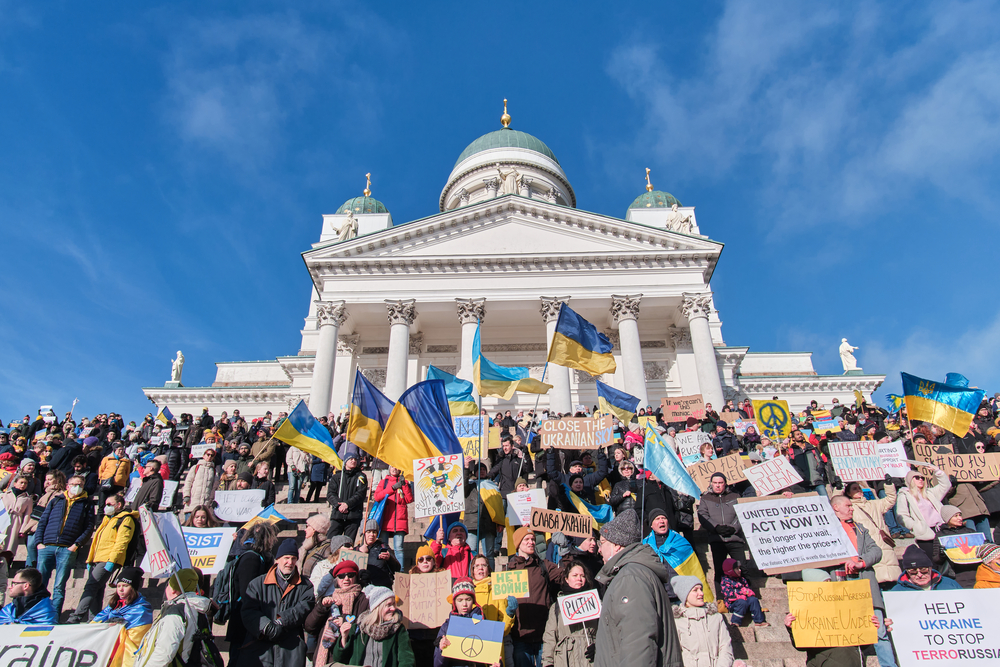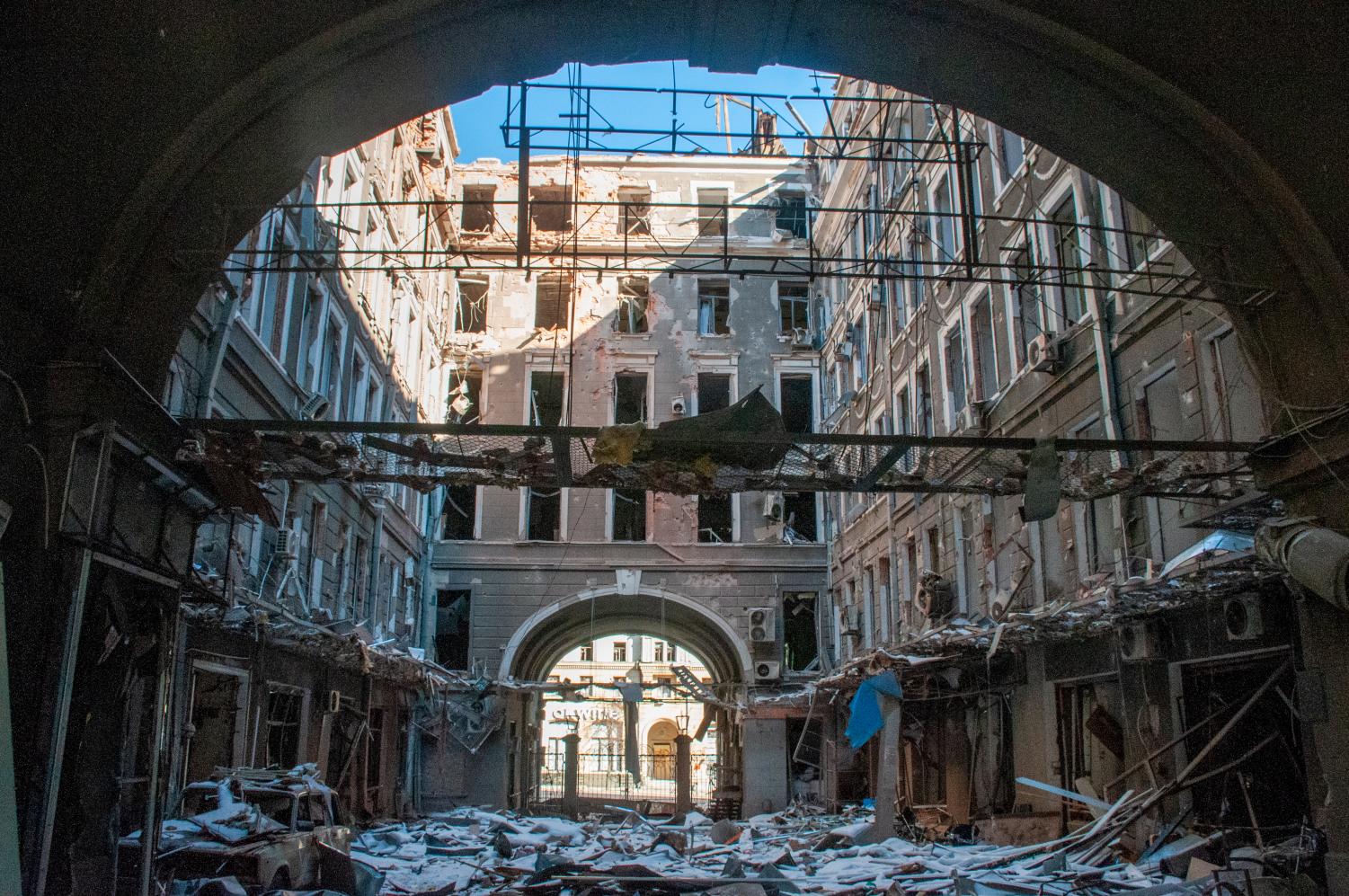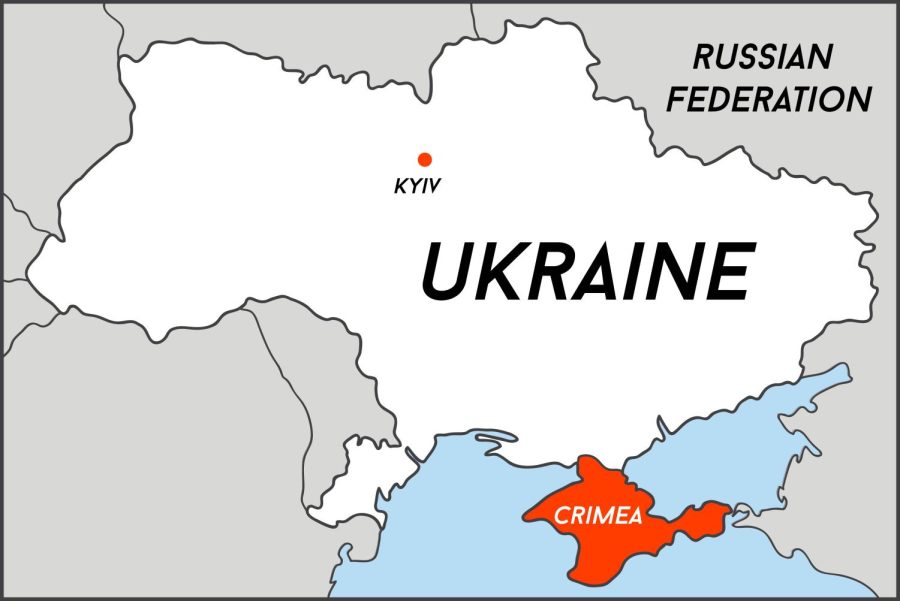Indisputably Wronged: Historical Context on Russo-Ukrainian Conflict Prompts Partiality Toward Ukraine
May 20, 2022
Russian President Vladimir Putin wishes to bring back the Soviet Union’s past by invading Ukraine and arguably casting war upon other former members of the Soviet Union to become the empire it once was.
As stated in an article written by Putin last summer, in 1922 “a major portion of [Ukraine] became part of the Soviet Union.” Putin’s statement is accurate. If you recall from grade-school history class, you’ve probably seen a map of the Soviet Union at its peak. By 1667, all of Ukraine had become part of Czarist Russia. Not only did the Soviet Union take up the Northwestern part of Europe, but it also contained other countries, such as Armenia, Azerbaijan and Georgia, as well as large countries south of Russia, ending at China’s borders.

Further down in his article, Putin asserted that “true sovereignty of Ukraine is possible only in partnership with Russia.” The Russian President went on to say that in the time since the Soviet Union collapsed, he thought that Soviet Union member-states would assimilate and have similar cultural, ethnic and religious values. He singled out Ukraine, saying that this member-state “began to mythologize and rewrite history [and] edit out everything that united [the Soviet Union].”
Putin believes that he is protecting Ukraine against a list of threats; threats that remain unfounded to all but him. “[W]e are facing the creation of a climate of fear in Ukrainian society, aggressive rhetoric, indulging neo-Nazis, and militarizing the country,” he stated. “The outcome of both Minsk 1 and Minsk 2, which gives a real chance to peacefully restore the territorial integrity of Ukraine by agreeing directly with the [Donetsk Peoples’ Republic] and [Luhansk Peoples’ Republic] with Russia, Germany, and France as mediators, contradicts the entire logic of the anti-Russia project.”
Minsk 1 and 2 were agreements made between Russia and Ukraine. Minsk 1 was a 12-point agreement signed in September 2014 and included, but was not limited to, an immediate ceasefire, prisoner exchanges, humanitarian aid and withdrawal of heavy weapons. However, both sides violated this agreement in February 2015.
Minsk 2 consisted of 13 points, including the restoration of Ukraine’s state borders, and the making of the Trilateral Contact Group which included Russia, Ukraine and the OSCE. Minsk 2 was then violated by the creation of yet another war. It is currently unknown if and when another Minsk agreement will be made.
In 2014, Russia invaded Ukraine on a much smaller scale and also annexed Crimea. Both Ukraine and Crimea had large Russian populations, and Russia began to arm pro-Russian separatists from among them. Putin’s approval rating increased from around 60% to around 80% as a result of the annexation of Crimea. This shows that many Russian civilians support aggressive Russian foreign policy and qualifies as the motivation for Putin’s second invasion of Ukraine.
Despite Russia’s repeated advances, Ukraine’s President, Volodymyr Zelensky, wants his nation to stay independent. Ukraine has established a national identity ever since the Soviet Union dissolved in 1991. That same year, Ukraine created its first-ever national constitution. In 2020, the nation had a GDP equivalent to 155.6 billion USD.
Ukraine has its unique language, currency (Hryvnia) and cuisine. As of 2022, Zelensky has an approval rating of 91 percent among Ukrainians. Many citizens who did not favor him at first are now in admiration of Zelensky’s handling of the unimaginable destruction that has targeted his country. Putin, on the other hand, is an evil dictator in many peoples’ eyes.
In his virtual address on March 16, President Zelensky cited the United States’ earlier gift of $13.6 billion to Ukraine and asked U.S. President Joe Biden for further support.
Four rounds of U.S. sanctions have been placed on Russia, a major fuel supplier. This is costly to the world’s economy and the world’s resources, explaining the rise in gas prices in the U.S. as of March 14.
Assistant professor in economics, Dr. Julie Love, discussed the efficacy of sanctions during wartime. Dr. Love described, “sanctions by President Biden and the European Union are meant to choke Russia’s economy.” While this may deter Russia from moving inwards, it may also do the exact opposite. If done at the wrong time, sanctions and embargoes may trigger further aggression.
In addition, the U.S. continues to deliver weapons and financial aid to Ukrainian soldiers to be able to fight. Congress has approved a $33 billion package to deliver to Ukraine. This package will go towards additional military assistance, the maintenance of Ukraine’s executive branch and the propagation of food production.
However, Zelensky implored the U.S. and European countries for stronger support, including the implementation of no-fly zones which would involve NATO members shooting down Russian jets that fly into Ukrainian territory. While NATO policy encourages support, it does not condone fighting.
A no-fly zone would mean that the U.S. is directly fighting Russia. Biden is hesitant to do this, as it would essentially mean the start of World War III. In addition, a no-fly zone was enacted three times before in the Iraq, Gulf and Bosnia-Herzegovina wars, which cost the U.S. a whopping $1.3 billion per year between 1996 and 2001. A third reason why the U.S. is hesitant to enact a no-fly zone is that it may prove ineffective in preventing Russian attacks.
As of May 12, there have been 3,573 civilians killed in Ukraine with 3,816 more injured. In April 2022, a train station in the city of Kramatorsk was struck by a Russian missile despite being off-limits due to its high density of innocent civilians fleeing the country. Tragically, 52 civilians were killed, including at least five children. In addition, the world was shocked to hear reports of tortured Ukrainian bodies scattered in the war zone. The incident has now been deemed a war crime and world leaders are taking steps to hold the Russian soldiers and Putin accountable.
All wars, especially wars that affect the world on a macro level, are controversial because each side has valid grievances. However, at a time when a superpower nation has baselessly attacked a democratic state, the world must come together to show its intolerance of tyranny by helping Ukraine, a nation that has been indisputably wronged. Complacency towards the Russo-Ukrainian conflict sends the message that it is okay to attack the democracy of innocent people when it is certainly not.

Consider supporting those individuals still in Ukraine by donating money or material goods to a trusted organization, such as UNICEF, Doctors without Borders or Voices of Children. You can also help Ukrainian refugees immigrating to the U.S. by volunteering your time with a refugee resettlement program. Consider flying a Ukrainian flag outside your home or workplace.
Students enrolled at Howard Community College who are disturbed by the events taking place abroad can receive free counseling in the Rouse Company Foundation Student Services Hall (RCF) as well as engage in stress relief activities in the Health and Wellness Center located in the Clark Library Building. Employees at Howard Community college can contact the Employee Assistance Program at 1-800-765-3277.
As Dr. Martin Luther King stated in 1963, “Injustice anywhere is a threat to justice everywhere. We are caught in an inescapable network of mutuality, tied in a single garment of destiny.” If we Americans do not want to be victims of tyranny, we must stand up for those who are.

